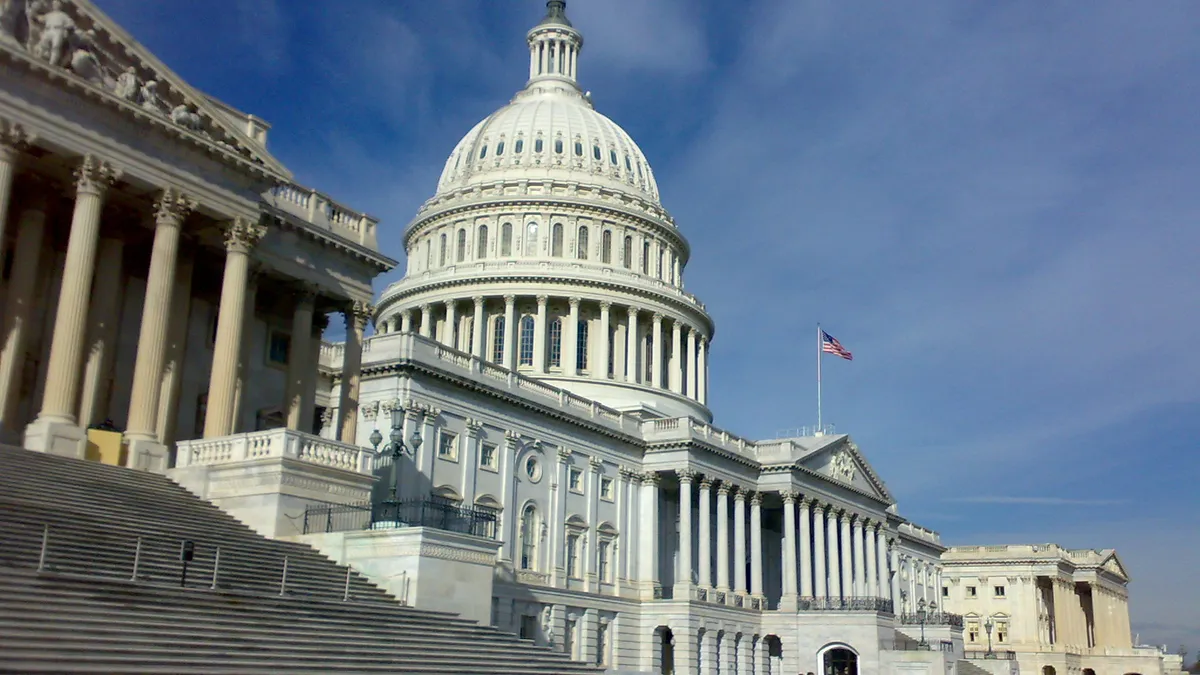This story has been updated with information on the House's vote to approve the bill on Tuesday.
Dive Brief:
- The U.S. House of Representatives on Tuesday approved a bill that would, among other things, identify spectrum available for the development and use of 5G and reduce the paperwork associated with building out wireless networks. The measure passed by voice vote.
- "This bipartisan, bicameral product puts consumers first and solidifies the nation’s critical telecommunications infrastructure, giving the U.S. a global edge in the race to 5G and improving internet services across the country," Rep. Greg Walden, R-OR, Rep. Frank Pallone, D-NJ, U.S. Sen. John Thune, R-SD, and U.S. Sen. Bill Nelson, D-FL, said in a joint statement. The four are the chairmen and ranking members of the House and Senate Commerce Committees.
- Identifying 5G spectrum already passed the US Senate in the MOBILE NOW Act last year, while other provisions in this legislation include reauthorizing the Federal Communications Commission (FCC); directing the FCC to draft a national policy for unlicensed spectrum; and allowing the FCC to deposit upfront payments from spectrum bidders directly into the U.S. Treasury.
Dive Insight:
The bill, which will now be sent to President Donald Trump's desk, would codify in law former President Barack Obama’s goal to make more spectrum available for mobile and fixed wireless broadband use by the end of 2020. The Senate’s version received praise from those in the industry, Wireless Week reports, including the Competitive Carriers Association and the Telecommunications Industry Association.
But even without Congressional action, private companies are taking the lead on providing 5G in cities, months after Trump’s administration floated a nationalized 5G network. AT&T announced Atlanta, Dallas and Waco, TX will receive mobile 5G by the end of the year, while Sprint and T-Mobile are doing similar work in cities across the United States.
At an event last week on the future of transportation, Walden said Congress must regulate the industry, but in a manner that would allow businesses and entrepreneurs to continue to lead the way. "Washington’s role is to get out the way of the innovators and allow this space to be filled by those who are really smart," he said. "And it’s not that we shouldn't have any regulation, but in my world, I want a competitive marketplace, because that benefits consumers. When you have a competitive marketplace, you drive innovation and competition and you drive down price."
Walden said bringing 5G coverage could also help rural areas in the United States, which were targeted for assistance earlier this year by Trump’s infrastructure plan’s provision of better broadband internet. “If we can get mobile coverage out there and at a speed that is really, really fast, you’re going to empower rural America. Right now in rural America, 23 million people don’t have access to the connectivity they need to be competitive," he said.











